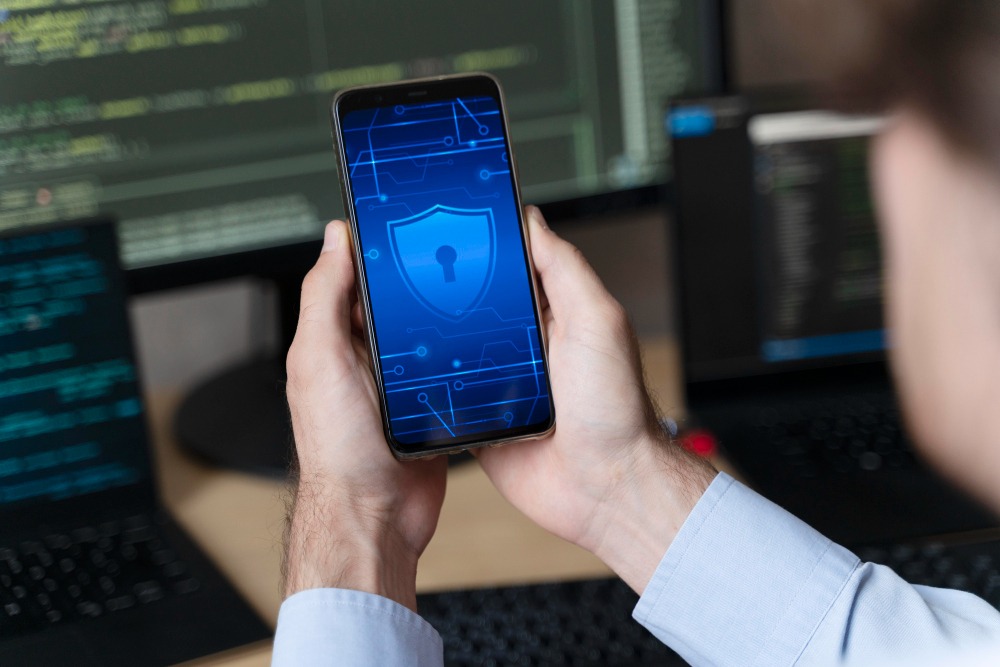
Using a proxy on your smartphone enhances your online security and privacy by masking your real IP address and location.
One of the major benefits of using a proxy is the ability to bypass content restrictions. If certain websites are blocked in your country, a proxy can help you access them by routing your connection through a server located in a different region.
While there are several types of proxies, web proxies are among the most commonly used. They work by channeling your internet traffic through a server in another country. This makes it appear as if you’re browsing from that location, which is especially useful for accessing geo-restricted content or services.
What is a Proxy?
A proxy acts as an intermediary between your mobile device and the internet. By using a different server to route your connection while you browse using a proxy, you can increase your privacy and conceal your identity. This is particularly helpful for improving security when using your smartphone to browse or for accessing websites that are banned.
How Does a Proxy Work?
Most often, proxies make it appear as though you are browsing from a different region by passing your internet traffic through a server located there. This is useful for getting to websites that are blocked in your country or geo-restricted content.
Setting Up a Proxy on a Mobile Phone
There are multiple ways to configure a proxy on your smartphone:
Using a VPN App: VPNs encrypt your data and send it via safe servers located elsewhere. They help get over geographical limits in addition to providing anonymity.
Using a Proxy App: Some apps allow you to input proxy settings and redirect your traffic manually.
Safe Proxy Services: These providers improve security and anonymity by providing more dependable performance and the ability to route traffic over several worldwide servers.
Be Cautious with Free Proxies
Free proxy servers may seem appealing, but often come with limitations:
- They can be unreliable or slow.
- May expose your device to malware.
- Often offer fewer IP addresses, which limits access to some websites.
- Typically lack strong security or privacy protections.
The Many Benefits of Using a Smartphone Proxy
Improved Performance: A well-configured proxy can cache data and manage requests efficiently, which may speed up browsing.
Enhanced Privacy: Websites are unable to track your precise location or identity since your true IP address is concealed.
Bypass Filters: Proxies help you access content blocked by governments, ISPs, or workplace/school networks.
Troubleshooting Proxy Issues on Mobile
If you’re having trouble with a proxy on your mobile device:
- Confirm that the proxy server is active and reachable.
- Restart your phone to refresh the connection.
- Double-check the proxy settings (IP address and port number).
- If problems continue, try moving to a different app or proxy server.
Also, Read:
- How to Set up a Proxy Server on Windows 10
- How to Unblock Instagram with a Proxy?
- How to Set Up a Proxy in SwitchyOmega for Browsing
- What is an Anonymous Proxy?
FAQs
Can a proxy completely hide my online activities?
No, a proxy can mask your IP address and provide anonymity, but it cannot completely hide your online activities. Advanced tracking methods may still be able to identify you.
Are proxy servers safe to use?
Not all proxy servers are safe to use. Free proxies, in particular, may threaten your privacy and security. It’s advisable to choose reputable and trusted proxy services.
Can proxies protect my smartphone from all types of malware?
Proxies can help block access to known malicious websites, but cannot provide comprehensive protection against all types of malware. It’s recommended to use antivirus software on your smartphone.
Do I need technical knowledge to set up a proxy on my smartphone?
Basic technical knowledge is helpful but not always necessary. Proxy apps provide a user-friendly interface for configuring proxies, making it easier for non-technical users.
Conclusion
Protecting your smartphone is crucial in today’s connected environment. While proxy servers can boost security, circumvent geographical censorship, and increase anonymity, they are best used in conjunction with other security measures.
Using proxies on your smartphone may help you protect your online privacy and have a more secure browsing experience, but you need to understand how they operate and their limitations.

